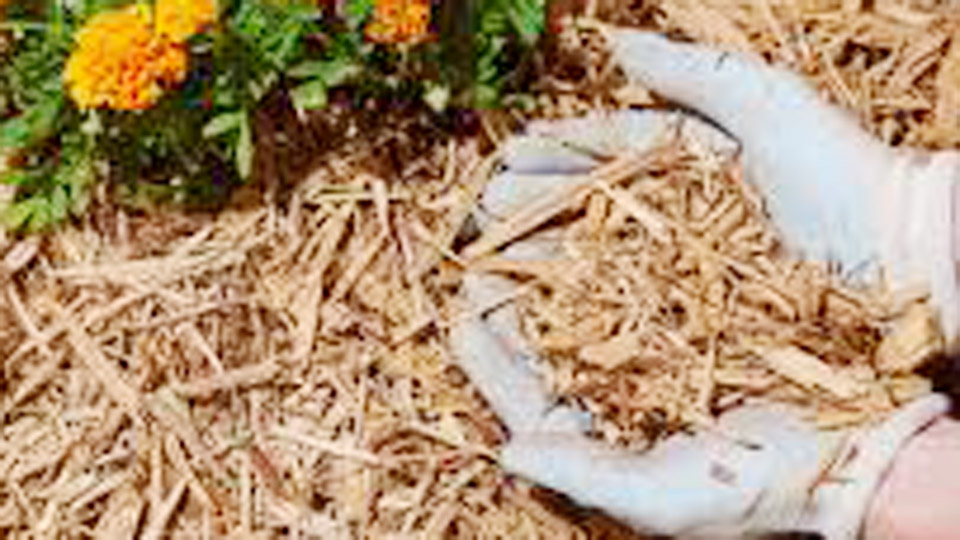When it comes to vegetable gardening, choosing the right type of mulch can make a huge difference in how healthy your plants grow and how much effort you need to put into maintaining your garden. I’ve spent a lot of time experimenting with different types of mulch, and let me tell you, it’s not a one-size-fits-all situation.
The type of mulch that works best for your vegetable garden depends on your specific needs, climate, and the kinds of vegetables you’re growing. Let’s dive into the different options and figure out what’s best for your garden.

Image by thespruce
What Is Mulch and Why Is It Important?
Mulch is essentially a protective covering you put on top of your soil. It can be made of organic materials like straw, leaves, or bark, or inorganic materials like plastic or stones. The primary goal of mulch is to protect and improve your soil. It helps retain moisture, regulate soil temperature, reduce weed growth, and even add nutrients to the soil.
I’ve learned over the years that using mulch is one of the simplest ways to make gardening more efficient. Instead of spending hours weeding or watering, mulch does a lot of that work for you. Plus, it can give your garden a neat and tidy appearance.
Benefits of Mulching a Vegetable Garden
Before we get into the specific types of mulch, let’s talk about why mulching is so beneficial for vegetable gardens. Here’s what you can expect when you use mulch:
Moisture Retention: Mulch acts as a barrier, slowing down water evaporation from the soil. This means you don’t have to water your garden as often.
Temperature Regulation: It helps keep the soil cool in the summer and warm in the winter, creating a stable environment for your plants.
Weed Suppression: Mulch blocks sunlight from reaching the soil, which helps prevent weeds from sprouting.
Soil Health: Organic mulches break down over time, adding nutrients and improving soil structure.
Protection: It prevents soil from eroding during heavy rain and stops it from compacting underfoot.
Now that you know why mulch is essential, let’s explore the different types and find out which one is best for your vegetable garden.
Organic Mulches for Vegetable Gardens
Organic mulches are made from natural materials, and they have the added benefit of enriching your soil as they break down. These are my favorite types of mulch for vegetable gardens because they’re eco-friendly and nourish the plants. Let’s look at the most popular options.
Straw
Straw is an excellent choice for vegetable gardens. It’s lightweight, easy to spread, and provides good coverage. I’ve used straw around crops like tomatoes, cucumbers, and peppers, and it works wonders for keeping weeds at bay.
- Pros: Retains moisture, suppresses weeds, and adds organic matter as it decomposes.
- Cons: It can blow away in windy conditions and sometimes contains weed seeds if it’s not from a clean source.
Grass Clippings
If you mow your lawn regularly, grass clippings can be a free and effective mulch option. They’re best used in thin layers to avoid matting, which can block air and water from reaching the soil.
- Pros: Readily available, adds nitrogen to the soil, and improves soil fertility.
- Cons: Can develop an unpleasant odor if applied too thickly and may introduce weed seeds if your lawn isn’t weed-free.
Wood Chips or Bark
Wood chips and bark mulch are great for pathways or around perennial vegetables like asparagus. They decompose slowly, providing long-term weed suppression and soil temperature regulation.
- Pros: Long-lasting and visually appealing.
- Cons: Can tie up nitrogen in the soil as they decompose, so they’re not ideal for annual vegetables.
Compost
Compost is one of the most nutrient-rich mulches you can use. It’s essentially decomposed organic matter and is fantastic for vegetable gardens. I often use a layer of compost as mulch, especially in raised beds.
- Pros: Boosts soil fertility, improves soil structure, and is sustainable.
- Cons: Requires regular replenishing and may not suppress weeds as effectively as other mulches.
Leaves
Fallen leaves are a free and abundant source of mulch, especially in the fall. Shredded leaves work best because they decompose more quickly and don’t form a dense mat.
- Pros: Retain moisture, add organic matter, and insulate the soil.
- Cons: Can attract pests if left in thick, unshredded layers.
Inorganic Mulches for Vegetable Gardens
Inorganic mulches don’t decompose, so they don’t add nutrients to the soil. However, they have their own advantages, particularly in controlling weeds and maintaining soil temperature. Here are some options:
Plastic Mulch
Plastic mulch is a popular choice for large-scale vegetable growers. It comes in black, clear, or colored varieties, with each offering different benefits.
- Pros: Excellent weed suppression and soil warming for early crops like melons.
- Cons: Doesn’t break down, making it less eco-friendly. Also, it can lead to water runoff if not installed properly.
Landscape Fabric
Landscape fabric is a long-lasting option for weed control. It’s permeable, allowing water and air to pass through, which makes it better than plastic for some gardeners.
- Pros: Durable, reusable, and effective at weed suppression.
- Cons: Needs to be anchored to prevent shifting and doesn’t improve soil fertility.
Gravel or Stones
While not commonly used for vegetable gardens, gravel or stones can be beneficial in areas where drainage is a concern.
- Pros: Long-lasting and helps with soil drainage.
- Cons: Doesn’t add nutrients and can make planting or replanting difficult.
Choosing the Best Mulch for Your Vegetable Garden
The best mulch for your vegetable garden depends on several factors:
Climate: In hot, dry climates, organic mulches like straw or wood chips work well to retain moisture. In cooler areas, plastic mulch can help warm the soil.
Type of Vegetables: Leafy greens and shallow-rooted vegetables do well with compost or straw, while heat-loving crops like melons thrive with plastic mulch.
Budget: Organic mulches like grass clippings or leaves are often free, while options like landscape fabric or gravel require an upfront investment.
Maintenance Preferences: If you want a low-maintenance option, consider something long-lasting like wood chips or landscape fabric.
Here’s a table summarizing the different mulches:
| Type of Mulch | Best For | Key Benefits | Drawbacks |
|---|---|---|---|
| Straw | Tomatoes, peppers | Retains moisture, suppresses weeds | Can blow away in wind |
| Grass Clippings | Most vegetables | Adds nitrogen, readily available | Can mat and smell if applied thickly |
| Wood Chips/Bark | Perennial vegetables | Long-lasting, weed suppression | May tie up soil nitrogen |
| Compost | Leafy greens, root crops | Nutrient-rich, improves soil health | Requires replenishing |
| Plastic Mulch | Heat-loving crops | Warms soil, excellent weed control | Not eco-friendly |
| Gravel/Stones | Areas with drainage issues | Durable, prevents erosion | Doesn’t improve soil fertility |
My Personal Recommendation
If you’re just starting out or want an all-purpose mulch, I recommend straw or shredded leaves. Both are easy to find, cost-effective, and work well for most vegetable gardens. For larger crops or heat-lovers like tomatoes and squash, you might want to try plastic mulch to give them a boost.
And don’t forget to layer organic compost under your mulch for added nutrition—it’s like giving your garden a double dose of goodness.
Conclusion
Mulching your vegetable garden isn’t just a good idea—it’s a game-changer. It saves you time, conserves water, and creates the perfect environment for your plants to thrive. While the type of mulch you choose depends on your garden’s specific needs, the key is to pick something that works for you and your vegetables.
After years of experimenting, I’ve found that no matter what mulch you choose, your garden will thank you. It’s one of those small changes that make a big difference. So, grab some straw, leaves, or even a roll of plastic, and give your garden the love it deserves.
FAQs
Can I use fresh grass clippings as mulch?
Yes, but apply them in thin layers to prevent matting and odor.
Is bark mulch safe for vegetable gardens?
Bark mulch is better for pathways or perennial vegetables, as it can tie up nitrogen in the soil.
How often should I replace mulch?
Organic mulches should be replenished annually, while inorganic mulches can last several seasons.
Does mulch attract pests?
Some mulches, like unshredded leaves or straw, can attract pests if applied too thickly.
What’s the best mulch for tomatoes?
Straw and black plastic mulch are excellent choices for tomatoes.

I’m Marissa Lynn, the proud author behind GardeningProperty.com! With a deep-rooted passion for all things green and growing, I’ve dedicated years to mastering the art and science of gardening.
From nurturing vibrant flowerbeds to cultivating thriving vegetable gardens, I love sharing practical tips, creative ideas, and proven techniques to help others create their dream outdoor spaces.